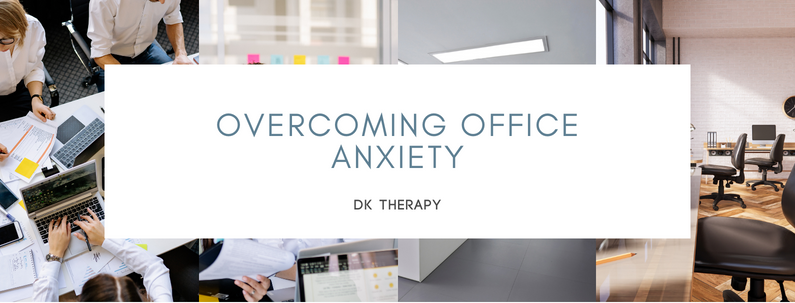
We’re in year 3 of the pandemic in the United States, but employers are ready for people to return to the office as soon as possible.
The shift from working at home to returning to the office is jarring for anyone accustomed to the recent change– it’s normal to be nervous! For some, pandemic-related anxieties may also seriously affect their willingness to return to the office. Regardless of what you’re nervous about, it’s okay to be apprehensive about a change in workplace, especially these days. Let’s go over some ways you can manage and overcome these anxieties about returning to work:
Find the Source of Your Anxiety
The first thing you should do, regardless of your anxiety level, is to find out why you’re apprehensive about returning to work, even on a hybrid schedule. If a specific thing is making you anxious, focusing on ways to work around it will help you prepare for reentering the workplace. For example, if you’re anxious about the drive to work, try practicing the trip a few times before you return. If there’s a coworker that you’re not psyched to be around, speak with your boss or human resources representative about them to find solutions.
In situations like these, seeking professional help from a therapist may also be helpful– they can teach you skills for managing anxiety and help you work through specific fears.
Anxious About Returning to Work? Try These Tips:
 Returning to the office will be difficult for everyone for many reasons. When you return to work, remember that you’re not alone in your anxiety, and your team may need to work slower than you previously have been. If you’re generally anxious about going back to the office, try these tips:
Returning to the office will be difficult for everyone for many reasons. When you return to work, remember that you’re not alone in your anxiety, and your team may need to work slower than you previously have been. If you’re generally anxious about going back to the office, try these tips:
Be Kind to Yourself
When returning to work, you should always remember to be kind to yourself. This means taking time before work to address your anxiety, taking time after work to cool down, and reminding yourself throughout the day that you’re in a stressful situation and that it affects how you work!
Being kind also includes taking time to eat, drinking plenty of water, and avoiding coffee or other energy stimulants, which can increase your anxiety levels.
Set Small Goals
The transition from working at home to working in the office will most likely affect your productivity, and that’s okay! Just because you’re getting less work done on the clock does not mean you’re incompetent. To help make the adjustment a bit easier, try setting smaller, more realistic goals for yourself. Setting boundaries with your coworkers and superiors is also essential to ensure you’re keeping up with these goals and not overworking yourself.
Take Breaks
In addition to setting smaller goals, taking frequent breaks is also a must while returning to the workplace. Regular breaks allow you time to rest, breathe, and make space for your anxiety. If you feel panicked, take ten minutes to breathe and use your skills. Stretch, go to the bathroom, eat a little something, or do breathing exercises. To ensure that you don’t get in trouble with your boss, communicate your boundaries clearly and specify that you may need to take short breaks from time to time.
Talk With a Trusted Coworker or Your Boss
If you’re especially anxious about returning to work, talk with someone you work with that you trust: a close coworker, an HR representative, or your employer. Explain to them as best you can why you’re anxious. They may be able to help you brainstorm solutions or provide you with accommodations to help ease your anxiety!
Protect Yourself as Best as Possible
One of the most common fears I’ve seen during the pandemic is the fear of getting sick or spreading illness. After years of isolation, being nervous about returning to work is expected. Many workplaces have guidelines in place to prevent the spread of illness, and there are things you can do on your end to help keep yourself and others safe as well, including:
- Staying up-to-date on your vaccines and booster shots
- Wearing a mask
- Staying home if you feel unwell
Remember: The ADA Has Your Back!
For many people who are physically disabled or immunocompromised, returning to the office may be an incredibly dangerous task. You can say no if you are immunocompromised and your boss wants you to come back to the office and work in person. Under the Americans with Disabilities Act, any individual with physical or mental conditions that seriously impact one or more major life activities is covered under the EEOC. Employers who fire employees or refuse to provide accommodations for them are considered to be discriminating against disabled workers and thus subject to legal action. If you feel your employer treats you unfairly because of your physical abilities, contact human resources immediately.
If you or a loved one is struggling with work-related anxiety, you’re not alone! Schedule an appointment with one of our clinicians to hear more tips and tricks for adjusting to a new work environment.




